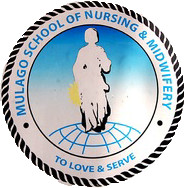Health information systems specialize in storing, managing, capturing, and transmitting information about the health of individuals along with all activities within the health care organization. Nursing informatics is a specialty that incorporates nursing care with the use of computers and information science to provide information about nursing care delivery. When entering the workforce, graduate nurses are expected to (1) use information to support safe, effective, and evidenced-informed care for their clients; (2) follow workplace, professional association, and regulatory bodies’ standards with respect to information and communication technologies; and (3) be able to use information and communication technologies in practice. Required skills include, but are not limited to, searching for credible and reliable health information online and assisting clients and their families in finding and evaluating the credibility and reliability of online health information.
e-Health
e-Health is a term used by Health Canada to describe the information and communication technologies used in health care, which includes a range of services such as electronic patient administration systems, lab and diagnostic tests, information services, and telehealth and telehomecare monitoring devices (including remote vital sign monitoring).
m-Health and Nursing informatics
Mobile technology has changed the way health care providers communicate, monitor, and connect with clients, families, and other health care providers. Any mobile device with smartphone capabilities allows for downloading apps, which are self-contained computer programs that run directly on the device’s home screen. This m-Health technology includes many different types of medical- and health-related apps, currently available either free of charge or for a fee.
The use of m-Health technology may have potential security issues. Many health apps currently available require the client to input personal health information (Cummings, Borycki, & Roehrer, 2013). The developer informs the user of the terms of use (including use of personal health information) by requiring a confirmation agreement before the app can be used. If the client agrees to the terms of use, users must be informed of who has access to any personal information placed within the app. Clients also need to be informed if this information will be monitored by their health care provider or if someone else outside the circle of care will have access to this health information, such as the app developer. All health care providers must follow HIPA (Health Information Protection Act) when using apps with multiple clients so that any personal information is de-identified. If more than one client is accessing a mobile device during a hospital stay or health consult, it is also important to develop privacy policies to prevent clients from accessing another client’s health information entered into the app.
e-Health
e-Health is a term used by Health Canada to describe the information and communication technologies used in health care, which includes a range of services such as electronic patient administration systems, lab and diagnostic tests, information services, and telehealth and telehomecare monitoring devices (including remote vital sign monitoring).
m-Health and Nursing informatics
Mobile technology has changed the way health care providers communicate, monitor, and connect with clients, families, and other health care providers. Any mobile device with smartphone capabilities allows for downloading apps, which are self-contained computer programs that run directly on the device’s home screen. This m-Health technology includes many different types of medical- and health-related apps, currently available either free of charge or for a fee.
The use of m-Health technology may have potential security issues. Many health apps currently available require the client to input personal health information (Cummings, Borycki, & Roehrer, 2013). The developer informs the user of the terms of use (including use of personal health information) by requiring a confirmation agreement before the app can be used. If the client agrees to the terms of use, users must be informed of who has access to any personal information placed within the app. Clients also need to be informed if this information will be monitored by their health care provider or if someone else outside the circle of care will have access to this health information, such as the app developer. All health care providers must follow HIPA (Health Information Protection Act) when using apps with multiple clients so that any personal information is de-identified. If more than one client is accessing a mobile device during a hospital stay or health consult, it is also important to develop privacy policies to prevent clients from accessing another client’s health information entered into the app.

